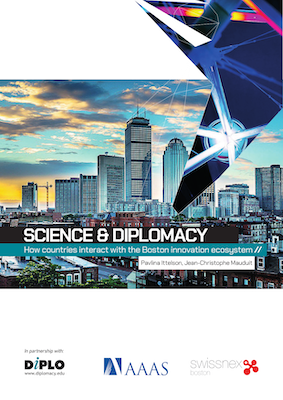Note: This article is a part of the publication ‘Science diplomacy capacity development: Reflections on Diplo’s 2021 course and the road ahead’
As a chemical engineer and a career diplomat, I could see from firsthand experience the clash between politics and science. During my first job as a diplomat, I unified and established the Colombian position regarding health issues at the World Health Organization (WHO). I gathered statements from different Colombian institutions such as the Ministry of Health, the Ministry of Trade, and the food and drugs administration, among others. In the diplomatic world some colleagues think that most technicians do not understand the diplomatic and political aspects of the issues they work with, and that is sadly true.
However, I discovered the other side of the story: most of the diplomats do not understand the scientific aspects of the issues they have to negotiate and deal with, and that is not only sad, but dangerous. That is the reason why I decided to work hard in awakening the importance of Science Diplomacy for diplomats, with a scientific mindset indispensable for doing our work. As an engineer I can help a little bit with that, and as a diplomat I experienced how to extract the best from both worlds.
As part of the Colombian Foreign Service, I have served in different positions abroad. As Consul in Ecuador, Venezuela, and Nicaragua for the last six years, I have had the experience of dealing with many delicate issues that diplomats must address in their daily routines, so I was far away from the academic world.
I recently came back to Colombia, because under the Diplomatic career ruled by national laws, a diplomat must alternate between periods in their native country and abroad. So, when I arrived in Bogota, I asked for a position at The Augusto Ramírez Ocampo Diplomatic Academy, an internal unit at the Colombian Ministry of Foreign Affairs in charge of the training and formation of current and future Colombian diplomats. I had in mind a specific purpose: to introduce science in diplomatic training through Science Diplomacy. Fortunately, they designated me as coordinator for academic cooperation inside the Colombian Diplomatic Academy, and from that position it was possible for me to build alliances with different institutions, for strengthening diplomatic training and getting Science Diplomacy allies that could help in linking both fields.
The Colombian institutional environment could not be better for promoting Science Diplomacy. The current government is working on a national Science Diplomacy strategy intended to become state policy. This particular interest came from the mandate of the so-called “Mission of Sages”, a group of remarkable experts in different fields gathered by the government to think about the future of science in Colombia. They proposed at first the concept of a national Science Diplomacy strategy in 2019 and recently held meetings for following up the implementation of this proposal.
The exercise of Science Diplomacy, nevertheless, is not recent, and it has been used previously as a tool of the country’s foreign policy with considerable success. There are three examples in which this previous exercise of scientific diplomacy is notable: the proposal and negotiation of the SDGs, the negotiation of biosimilar medicines, and the way in which the world drug problem was addressed.
We want Science Diplomacy as a structural pillar of Colombian foreign policy, and we want to put science at the core of the policymaking and negotiation processes, and thus the recent development of a national strategy is fundamental for building state policy in Science Diplomacy. Furthermore, we need to look beyond immediate needs and think about the future.








